- Home
- About
- Advantages of JPods
- Capacity
- Conservation
- Economics
- 10X Capital Savings
- Base the $ on Energy
- Dangerous Economic Assumptions
- Free Markets
- Jobs
- Land Use
- Linear Barriers to Commerce and Nature
- Metrics: Replace GDP with Disposable Energy
- Parking
- Supply_Demand
- Free Market Efficiency
- Net Energy Decline
- Inaccurate IEA Forecasts
- 'Titanic' Oil Economy
- Paychecks and Oil
- History
- Lifeboat Paradox
- Links
- Management Team
- Metrics
- Payback
- Peak Oil
- Project Flow
- Recipe
- Solar
- Technologies
- What are JPods
- Why JPods®
- Be Involved
- Key Steps
- Franchise Agreement (draft)
- Solar Mobility Act
- Own and Operate a JPods Network
- Become a JPods Supplier
- Design Your Own JPods Network
- Investors
- Spread The Word
- 8-80 Cities
- Agreements
- Cities of the Sun
- Domestic War by 2023
- Kitty Hawk Network
- Regulation
- San Jose State
- Scale Model
- Railroad 1862
- News
- Cities
- Contacts
You are here
Somerville, MA
Use JPods 3D software to illustrate a network from Kendall Square to Prospect Hills (software to design your own network). And then, extend over the Grand Junction line.
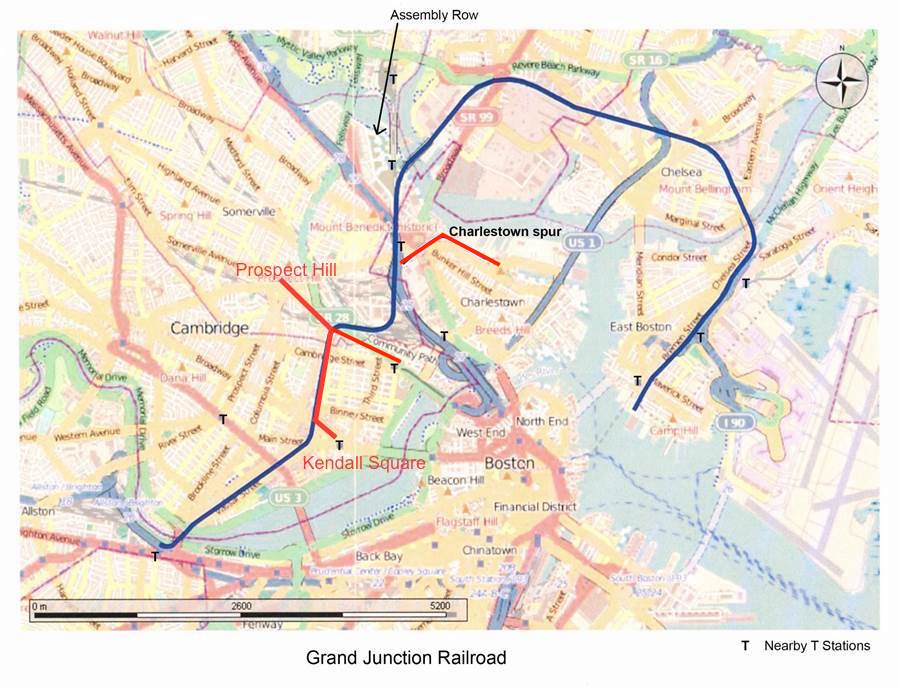
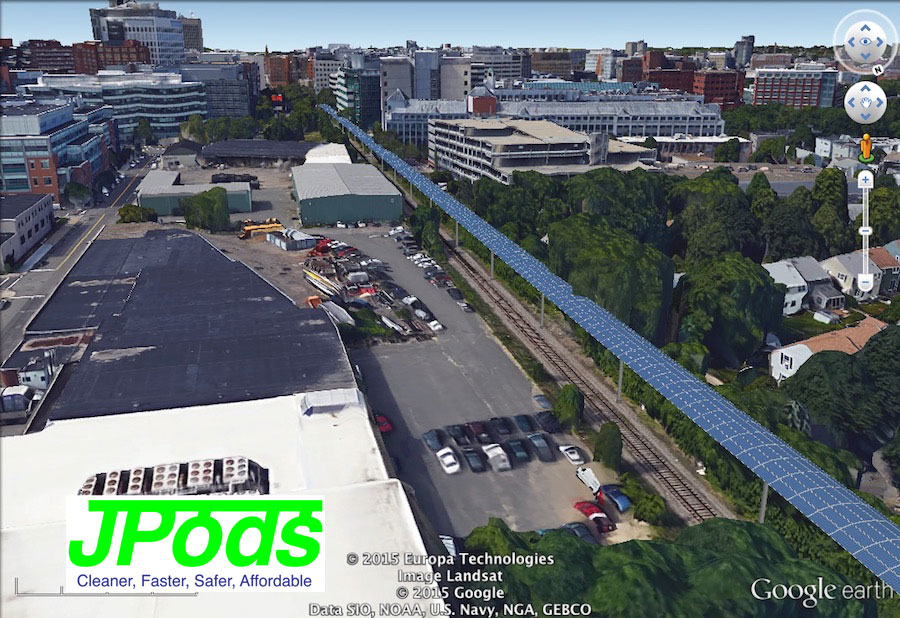
Grand Junction RouteTime from Bill James on Vimeo.
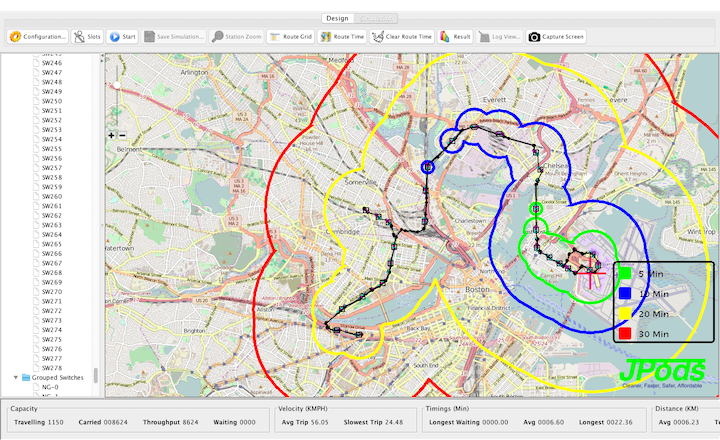
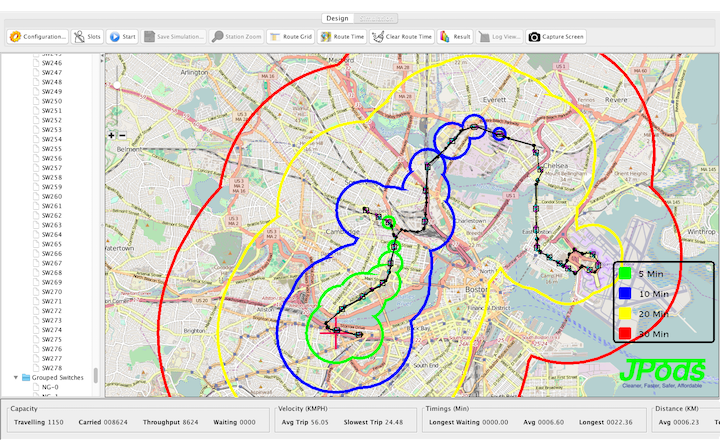
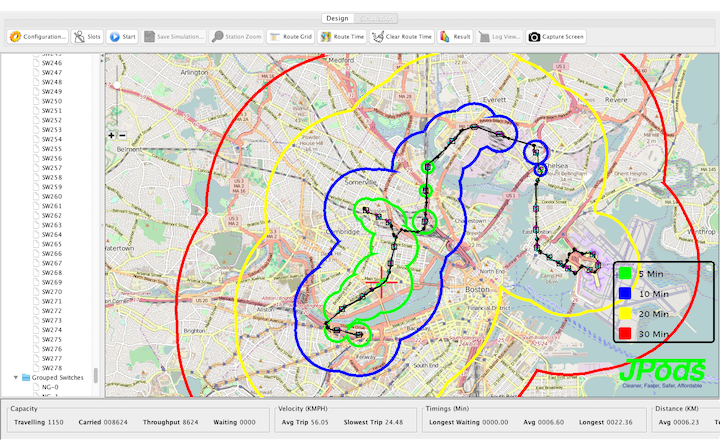
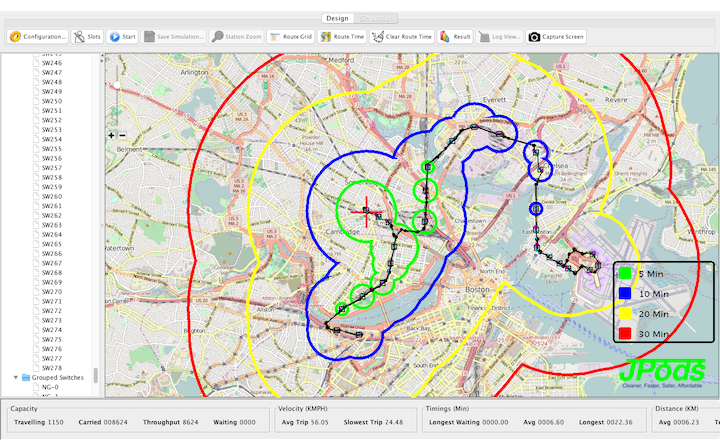
90 Second Massachusetts JPods from Bill James on Vimeo.
Congestion can be solved by recovering $9 billion a year from the $19.9 billion a year traffic costs the people of Massachusetts. Once liberty to choose mobility solutions is restored, as specified by Massachusetts Senate Bill #1837, people will choose cleaner, faster, safer, and more affordable mobility networks than government mandated highways and mass transit.
Yearly traffic costs in Massachusetts are about $15.7 billion:
- $6.7 billion per year sent of foreign gasoline (link) ($2.40 per gallon).
- $6.0 billion per year on accidents (link).
- $3.0 billion per year spent on congestion (link).
Yet, radically safer and more efficient transportation is very well understood:
- Freight railroads average 476 ton-miles per gallon (link).
- The Personal Rapid Transit (PRT or podcar) network in Morgantown has delivered 110 million oil-free, injury-free passenger-miles since being built as a solution to the 1973 Oil Embargo in 1975. In that same period of zero injuries, 1.6 million Americans died on the government highway monopoly. Highway accidents are not accidents. Who they happen to is random, that they happen is a design feature of the highway network.
In addition, Massachusetts was founded and liberty established powered within a solar budget. In 1910 Thomas Edison noted it was practical to have all energy needs powered by sunshine:
"Sunshine is spread out thin and so is electricity. Perhaps they are the same, Sunshine is a form of energy, and the winds and the tides are manifestations of energy..... Do we use them? Oh, no! We burn up wood and coal, as renters burn up the front fence for fuel. We live like squatters, not as if we owned the property.... There must surely come a time when heat and power will be stored in unlimited quantities in every community, all gathered by natural forces. Electricity ought to be as cheap as oxygen...."
Senate Bill #1837. The Bill currently in the Joint Transportation Committee. When this bill becomes law, bureacracies will have to write reasons they are rejecting transportation networks that can be built without taxpayer expense that exceed 5 times the gas mileage of automobiles. This will allow Boston to become an 8-80 City (watch video).
Boston Globe article, Aug 13,2015. Please share with your friends.
Videos of Boston City Council hearing, Oct 5, 2015. We believe the hearing will result in a Boston City Council resolution of support for Massachusetts Senate Bill #1837.
Two page summary sheet of how #1837 will retool Massachusetts mobility by recovering $3 billion/year in customer savings and $6 billion/year in profitable revenue from the $19.9 billion/year spent on traffic (print version and email version).
Background of flood control. Talking Points with the Deputy Commanding General, US Army Corps of Engineers.
Link to the success of the Morgantown PRT network and the independent audit showing a payback every 5 years.
RouteTime™ software calculates the number of vehicles, capacity, and travel times between various network locations. Anyone can download and design these networks for their own evaluations (link). In each of the following maps
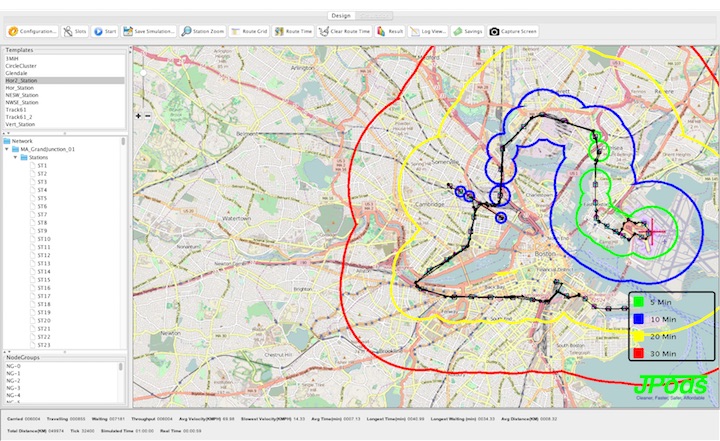
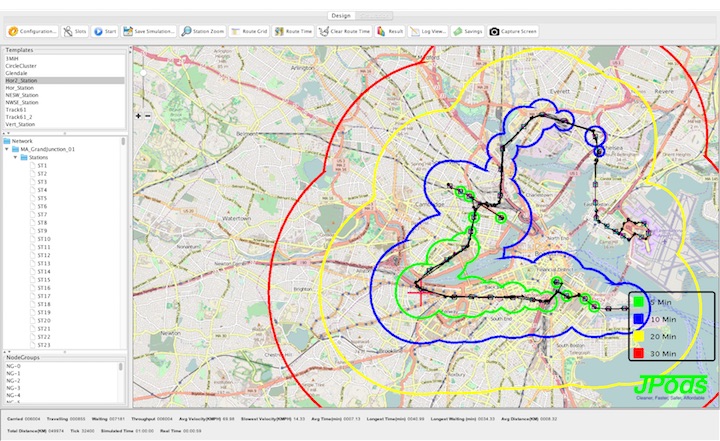
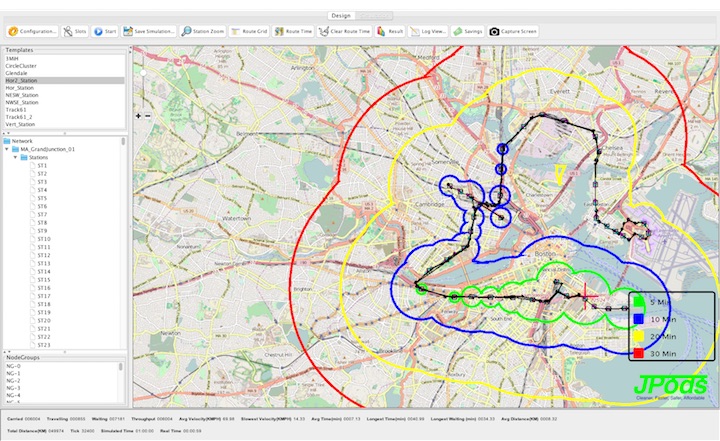
Working with students from John D. O'Bryant STEM school. The kids setup the JPods network in the school.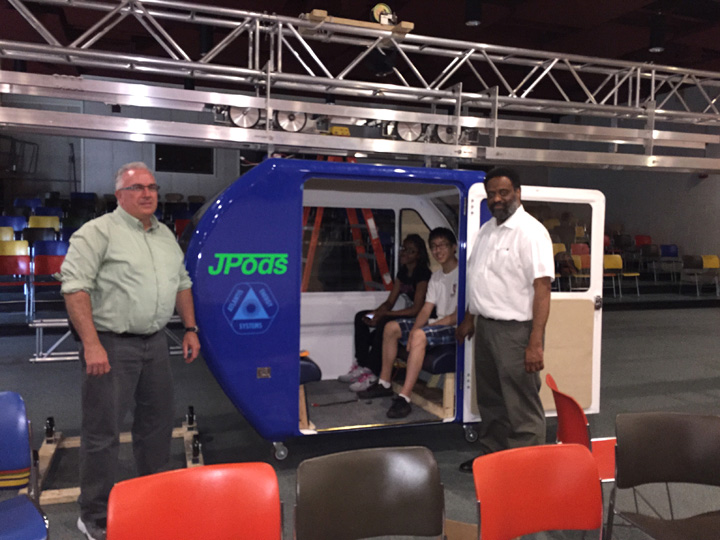
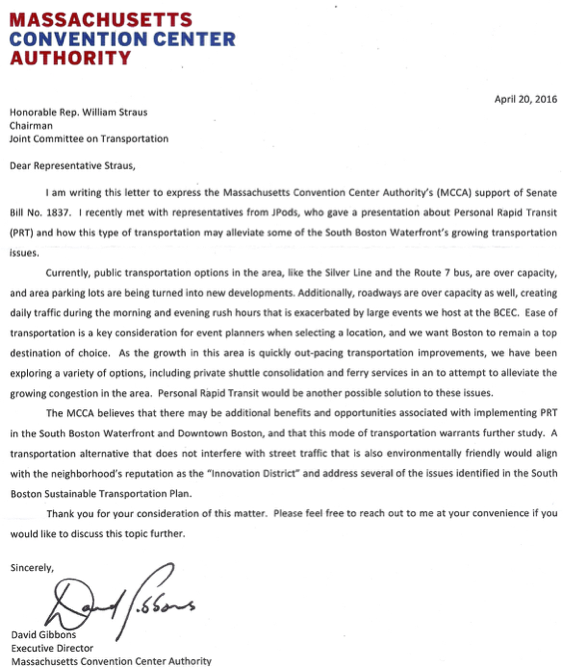
Images of what a network might look like at Assembly Square. Currently the management there has rejected deploying solar-powered mobility networks.
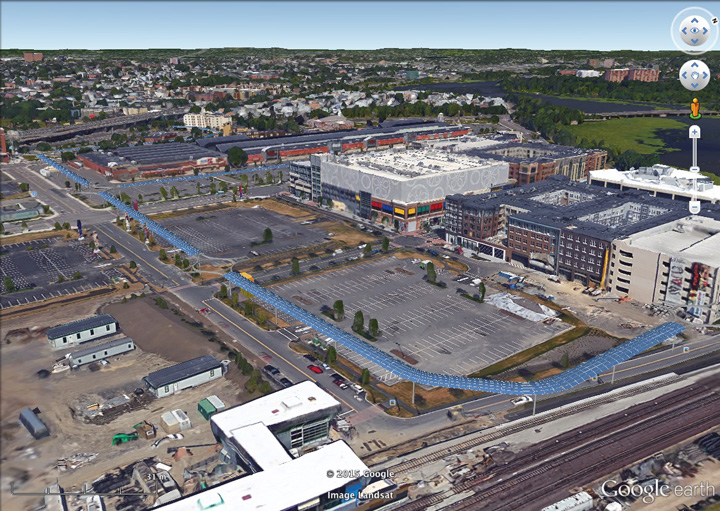
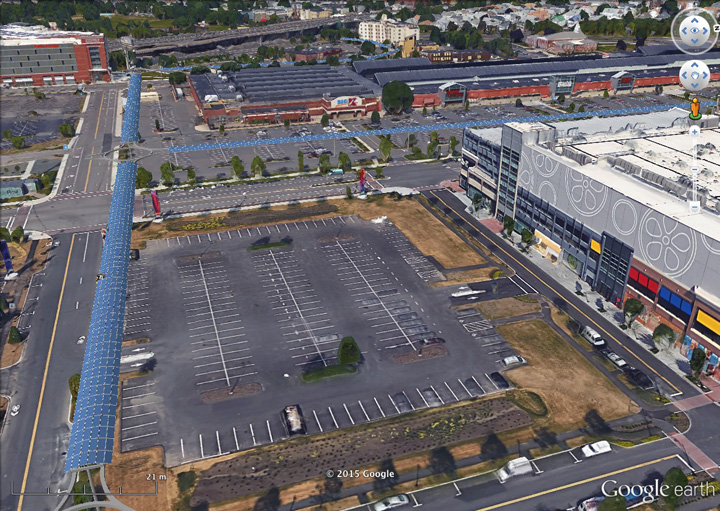
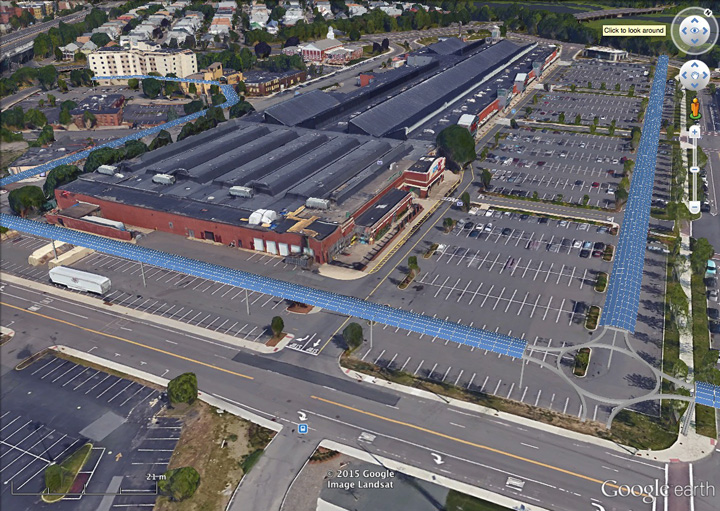
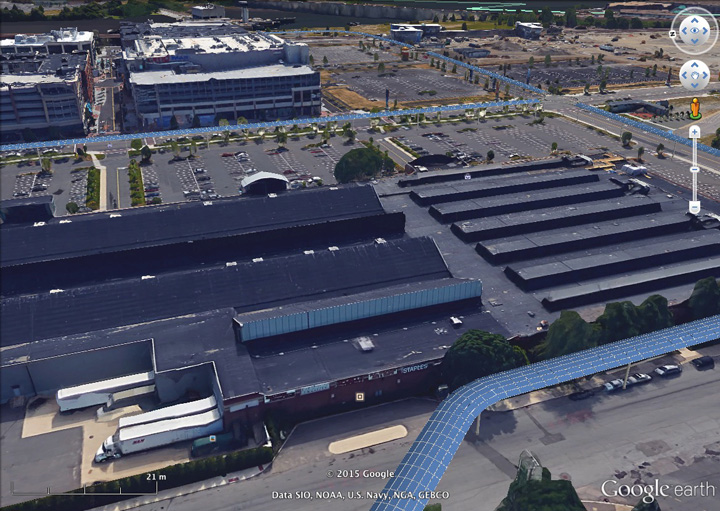
Theme by Danetsoft and Danang Probo Sayekti inspired by Maksimer